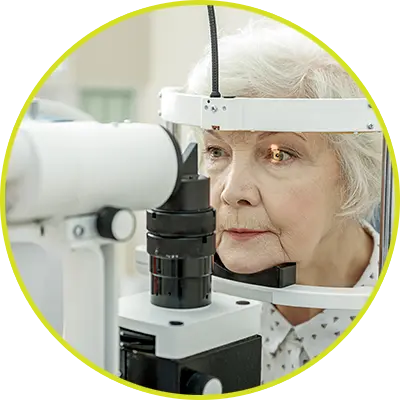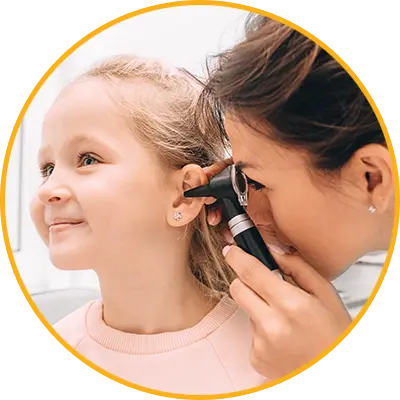Dental - Vision - Hearing Insurance
Elevate your quality of life with the comprehensive coverage of dental, vision, and hearing insurance! Imagine a world where your smile is radiant, your vision is crystal-clear, and your hearing is sharp as ever. With our insurance plan, you’ll enjoy the peace of mind that comes with regular check-ups, access to top-notch professionals, and coverage for essential procedures. Say goodbye to worries about unexpected expenses and hello to a healthier, happier you. Invest in your well-being today and savor life’s precious moments with confidence. Don’t miss out on this opportunity to secure your sensory wellness – it’s the key to unlocking a brighter, clearer, and more harmonious future. Join us now and experience the transformative benefits of dental, vision, and hearing insurance!








Dental Insurance
Dental insurance is a type of health insurance designed to pay a portion of the costs associated with dental care. It can be purchased as a standalone policy or as part of a more comprehensive health insurance plan. Here’s a brief overview of dental insurance and the different types of coverage that are commonly available.
 Choosing the right dental insurance depends on your individual needs, budget, and preferences. Evaluating the coverage levels, network restrictions, premiums, deductibles, and other factors is key to finding the plan that best suits your situation. It might also be beneficial to consult with an insurance professional at Best Insurance Yet who can help you navigate the various options.
Choosing the right dental insurance depends on your individual needs, budget, and preferences. Evaluating the coverage levels, network restrictions, premiums, deductibles, and other factors is key to finding the plan that best suits your situation. It might also be beneficial to consult with an insurance professional at Best Insurance Yet who can help you navigate the various options.
Dental Insurance Basics
Dental insurance typically covers preventive care, basic procedures, and major procedures, but the extent of coverage can vary significantly depending on the plan. Here’s what these categories usually include:
Preventive Care: Includes regular check-ups, cleanings, X-rays, and sometimes fluoride treatments. Most dental plans cover preventive care at 100% or with a small co-payment.
Basic Procedures: These include fillings, extractions, root canals, and gum treatments. Insurance might cover a percentage of these costs, usually around 50% to 80%, with the patient responsible for the remainder.
Major Procedures: This category typically includes crowns, bridges, dentures, and sometimes orthodontic work. Coverage might be 50% or less, and there may be waiting periods before these benefits become available.
Different Types of Dental Insurance Plans
Dental Health Maintenance Organization (DHMO) Plans
These plans often have lower premiums and require you to choose a primary care dentist from a network. There may be no or very low deductibles, but you must stay within the network for care, or the costs may not be covered.
Dental Preferred Provider Organization (DPPO) Plans
These plans typically offer more flexibility in choosing a dental provider, and you can see out-of-network dentists, but at a higher cost. DPPOs usually have higher premiums and deductibles compared to DHMOs.
 Dental Indemnity Plans
Dental Indemnity Plans
These traditional fee-for-service plans allow you to choose any dentist and the insurance pays a percentage of the provider’s fee. They usually offer the most flexibility but often come with higher premiums, deductibles, and potential copayments.
Discount or Referral Dental Plans
These are not traditional insurance plans but rather membership in a network that provides discounts on dental services. You pay an annual or monthly fee to access reduced rates at participating dentists. It can be a more affordable option for those without access to traditional dental insurance.
Government or Group Plans
Some government programs like Medicaid or the Children’s Health Insurance Program (CHIP) may offer dental coverage. Similarly, group plans through employers or associations might provide dental benefits tailored to the needs of the group.
Direct Reimbursement Plans
These are self-funded plans where a patient pays for dental care and is then reimbursed a percentage of the cost by their employer. They offer a lot of flexibility but can require more out-of-pocket expenses upfront.
Vision Insurance
Vision insurance is a type of health insurance that covers or reduces the cost associated with eye care and eyewear. It can cover routine eye exams and may partially or fully cover the costs of glasses, contact lenses, and even some types of eye surgeries. Vision insurance can be a valuable benefit for individuals and families, as eye care expenses can add up quickly. Below, you’ll find some typical vision insurance options and their features.
 The exact coverage and costs of these options can vary widely, depending on the provider, location, individual or family needs, and other factors. It’s essential to carefully review any vision insurance plan, compare it with your needs and budget, and consult with an insurance professional at Best Insurance Yet to help make the best decision.
The exact coverage and costs of these options can vary widely, depending on the provider, location, individual or family needs, and other factors. It’s essential to carefully review any vision insurance plan, compare it with your needs and budget, and consult with an insurance professional at Best Insurance Yet to help make the best decision.
Vision Benefits Package
Premiums: You pay a fixed monthly or annual premium.
Co-Pays/Deductibles: Often includes co-pays for services like eye exams and a deductible that you must meet before insurance kicks in.
Coverage: This type of package might cover the cost of an annual eye exam, a set amount towards glasses or contact lenses, and sometimes even discounts on laser vision correction.
Discount Vision Plans
Membership Fees: You pay a membership fee instead of a premium.
Discounts: These plans offer discounts on eye exams, glasses, contacts, and sometimes surgeries, but do not cover the costs outright.
Network: You typically need to use a network provider to get the discounts.
- Health Savings Accounts (HSAs) and Flexible Spending Accounts (FSAs)
Contribution: You contribute pre-tax dollars into these accounts.
Eligibility: Often used in conjunction with a high-deductible health plan (HDHP).
Usage: These funds can be used for qualifying medical expenses, including vision care.
- Rider on a Health Insurance Policy
Add-on: Vision coverage might be an optional rider you can add to a general health insurance policy.
Coverage: Varies depending on the health insurance provider and the specific rider, but generally includes eye exams and a set amount towards eyewear.
- Group Vision Insurance through Employers
Premiums: Often, employers will pay part or all of the premium.
Coverage: Typically covers annual or biennial eye exams, with some assistance towards glasses or contacts.
Options: Many employer plans allow employees to choose between various coverage levels.
-
 Individual Plans
Individual Plans
Purchased Directly: If not offered through an employer, individuals can purchase vision insurance directly from providers.
Coverage: Similar to group plans, covering eye exams and providing some assistance for glasses or contacts.
- Government Programs
Eligibility: For certain groups, like children, seniors, or those with low income, government programs may offer vision benefits.
Coverage: This can include free or low-cost eye exams, glasses, and other vision-related services.
- Catastrophic or Major Medical Vision Insurance
Coverage: This is designed for significant eye issues or surgeries and covers significant medical expenses related to the eye.
Premiums: May have higher premiums or deductibles.
Hearing Insurance
 Hearing insurance is a vital and often overlooked aspect of healthcare coverage. With a growing population of individuals experiencing hearing impairments, the demand for comprehensive hearing insurance has never been greater. Below highlights the significance of hearing insurance and the unique benefits it offers to both individuals and organizations.
Hearing insurance is a vital and often overlooked aspect of healthcare coverage. With a growing population of individuals experiencing hearing impairments, the demand for comprehensive hearing insurance has never been greater. Below highlights the significance of hearing insurance and the unique benefits it offers to both individuals and organizations.
Hearing insurance is a vital component of overall health coverage in today’s world. As the need for hearing health services continues to grow. By tailoring plans to meet the diverse needs of individuals and organizations and focusing on education and customer satisfaction, Best Insurance Yet can play a pivotal role in improving the hearing health of you and your family.
Why Hearing Insurance
Aging Population: The global population is aging, leading to an increased prevalence of hearing loss. This demographic shift is driving the need for hearing insurance as more people seek solutions to address their hearing health.
Increased Noise Pollution: In today’s noisy world, individuals of all ages are exposed to higher levels of noise pollution, increasing the risk of hearing damage. Hearing insurance becomes essential in such an environment.
Advancements in Hearing Technology: As hearing aid technology advances, more people are looking to upgrade their devices regularly. Hearing insurance can help cover the costs associated with these advancements.
Key Benefits of Hearing Insurance
 Financial Peace of Mind: Hearing insurance provides financial protection by covering the costs of hearing tests, consultations, hearing aids, repairs, and maintenance. This eases the burden on individuals and families.
Financial Peace of Mind: Hearing insurance provides financial protection by covering the costs of hearing tests, consultations, hearing aids, repairs, and maintenance. This eases the burden on individuals and families.
Access to Quality Care: Hearing insurance often comes with a network of audiologists and hearing specialists, ensuring that policyholders receive the best possible care and support for their hearing needs.
Customizable Coverage: Hearing insurance plans can be tailored to meet individual needs, allowing policyholders to choose the level of coverage that suits their lifestyle and requirements.
Preventive Services: Some plans include preventive services, such as regular hearing check-ups, which can help identify issues early and prevent further hearing loss.
Who Benefits from Hearing Insurance
Seniors: With age-related hearing loss being common, seniors are a significant target demographic for hearing insurance.
Working Professionals: Those exposed to noisy environments, such as construction workers or musicians, can benefit from hearing insurance to protect their hearing.
Families: Family-oriented policies can provide coverage for multiple family members, ensuring everyone’s hearing health is protected.
Employers: Companies can offer hearing insurance as an employee benefit, promoting the well-being of their workforce and attracting top talent.

